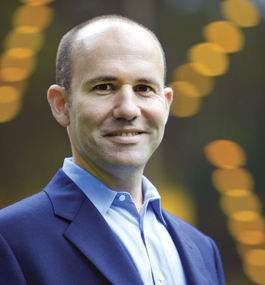 By Andy Molinsky
By Andy Molinsky
Coaching and mentoring is more popular than ever — and for good reason. As individuals progress in their jobs and careers, they’re constantly challenged to build their skills and act outside their comfort zones. Timid executives are called upon to learn to deliver motivational speeches; conflict-avoidant managers need to learn to deliver bad news; and mild-mannered job seekers need to pitch and promote themselves at networking events.
And mentoring doesn’t just happen in traditional corporate settings. It also abounds in educational, religious, athletic, and nonprofit worlds as well, where deeply experienced individuals become coaches and mentors to help others with less experience get on the fast track to success.
Or at least that’s the hope. The reality, I’m afraid, is much more of a mixed bag, as often coaching does more harm than good. The problem lies in trusting that experience alone can make you a good coach. What I’ve observed watching coaches and mentors — and even coaching young professionals and executives myself — is that there can actually be a liability of experience when it comes to coaching. As we take on the roles of coaches or mentors, we must be aware of how our experience can hold others back, or else it can lead to negative results and frustrating relationships.
The first liability of experience has to do with emotion. As coaches and mentors, we’re typically chosen for our experience — which is a good thing. But that experience can also be a liability when it means we’re far removed from the actual experience of learning challenging new skills. People can really struggle when trying to master new skills. They can feel anxious, self-conscious, embarrassed, and even frustrated and angry. It can take a delicate touch and keen insight to give the right advice, intervene in a timely manner, offer the right words of wisdom and encouragement, and really understand how to nurture a trainee’s sense of confidence. But if you haven’t been there in a while and you can’t empathize with your trainees’ experience, you can miss this emotional side of skill building, which is a critical part of the process.
Moreover, as a deeply experienced mentor, you can also fail on an emotional front by not being able or willing to express your own vulnerabilities around learning challenging new tasks. In a mentor or coaching relationship, individuals want their experienced counterpart to be able to empathize with their experiences. They want to hear that you have struggled — and that you understand what they’re going through. This helps build a connection between you and “normalize” the challenges they’re experiencing. But as a mentor, if you’re too fixated on expressing an image of expertise and not exposing your own vulnerabilities, you can miss a critical opportunity to connect with your clients.
In addition to these emotional barriers, experienced mentors and coaches often have unrealistic expectations about how learning typically occurs. Since they are so far removed from the experience of learning new skills, these individuals generally forget that success isn’t immediate. When learning a challenging new skill, people often have very uneven results. For example, someone I worked with from a different country learning to interview in the United States was very successful in her initial attempts, and as her mentor, I was extremely pleased — for her and, I have to admit, for myself! But as she inevitably struggled in subsequent attempts, I found myself frustrated, noting in my mind these next attempts as “failures” and wondering why she was now having issues when the early attempts had been so positive. I’m certain now that this frustration and disappointed “leaked” into my conversations; this didn’t help the person I was working with and created a tense relationship.
Although they may be fleeting, it’s critical to celebrate these early achievements when they happen. Many mentors (myself included) often focus on “what’s next” without stopping to actually celebrate and appreciate how much someone has accomplished, even if that accomplishment is a small step. This failure to celebrate small wins can cause mentors to miss a valuable opportunities to build their trainee’s self-confidence, which is often just as critical as the more traditional skill building process.
Finally, a last trap that experienced mentors can fall into is that of unfair comparisons. Who among us has not compared one employee to another, one student to another, or even one child to another? Comparisons are a temptation we often can’t avoid, but in the case of coaching, they can be damaging. When we compare one employee to another — or even to ourselves — we can end up missing evidence of actual progress, marking one person as a “failure” and another as a “success,” when the reality might be that the first person has actually made progress in other, more subtle ways. By falling in the trap of comparison, we are potentially missing important details in the experiences of the people we’re actually trying to help.
As mentors, we all want to use our deep experience and expertise to help the people we’re working with. And by paying attention to the potential downside of this experience and managing it appropriately, we can deliver on that promise.
Source: CEO



